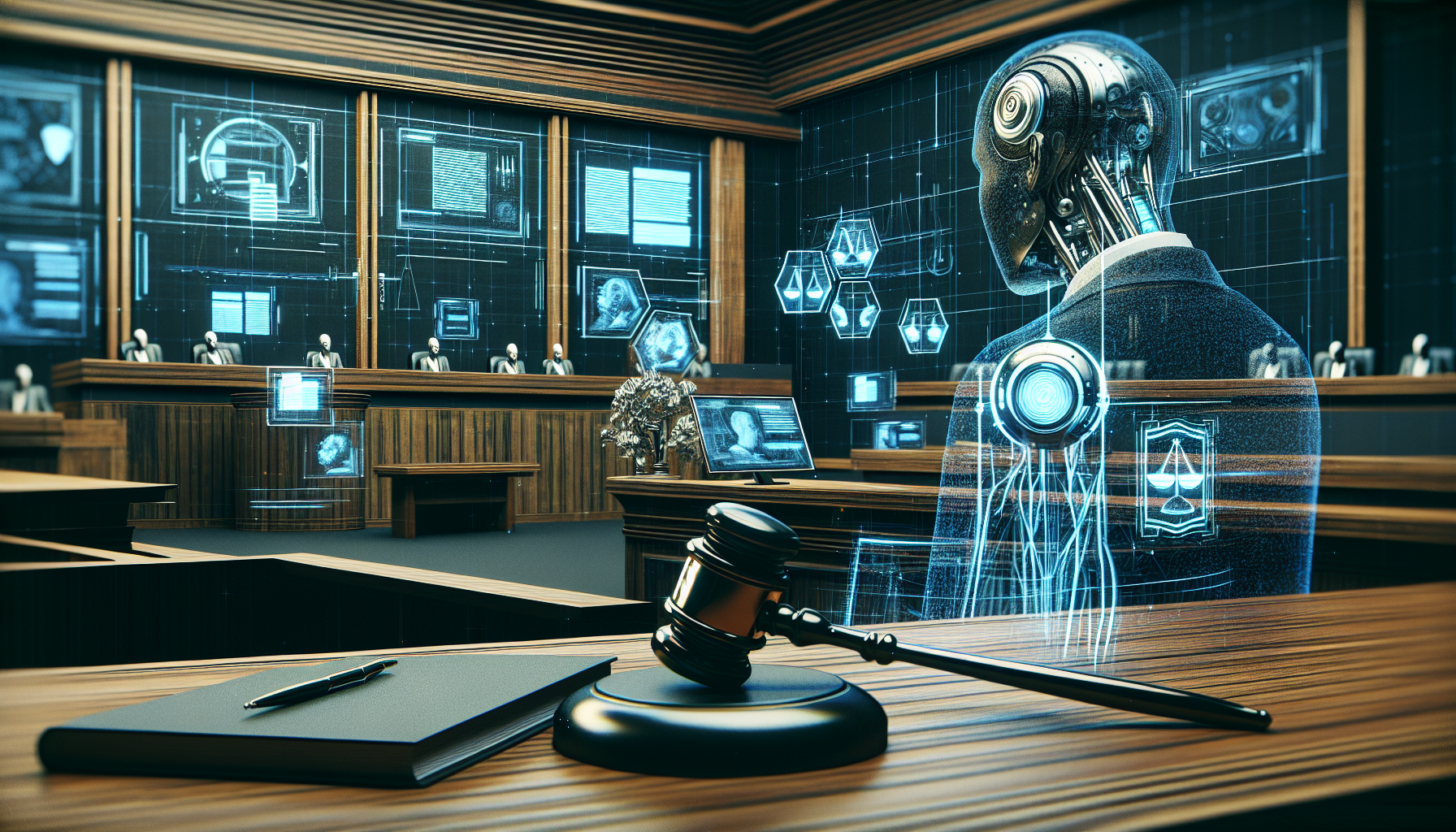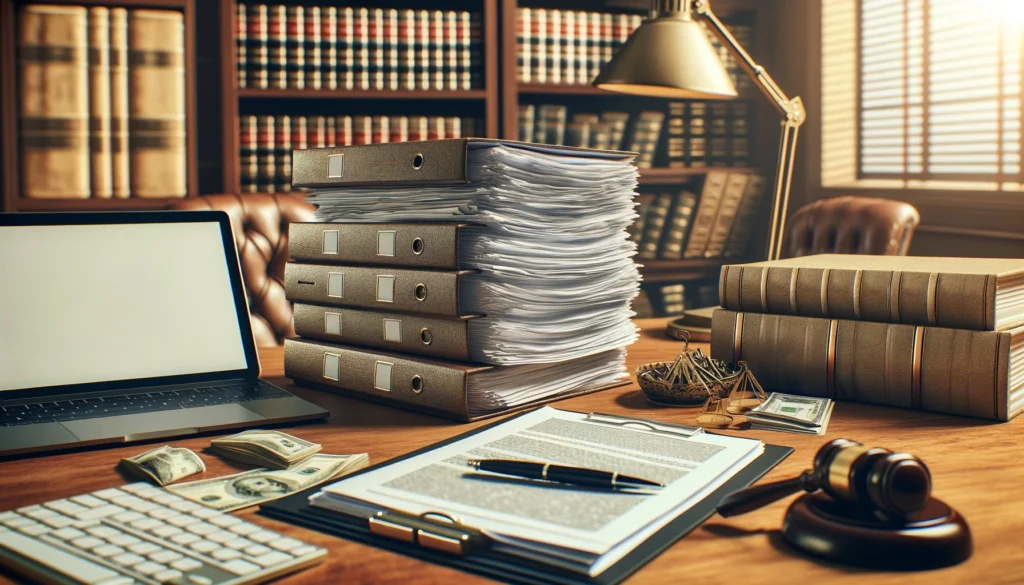
Setting the Scene: Understanding Pre-Trial Motions in Personal Injury Cases
In the realm of personal injury litigation, pre-trial motions play a pivotal role. These judicial petitions, filed before the commencement of a trial, are crucial for shaping the admissibility of evidence, managing case directions, and negotiating settlements. Pre-trial motions can range from motions to dismiss, motions for summary judgment, to motions in limine, among others. Given their importance, the meticulous preparation of these motions is paramount. This is where paralegals often step in, undertaking the herculean task of creating, organizing, and refining these documents. Their work ensures that attorneys are well-prepared and equipped to advocate for their clients effectively.
As we delve into modern enhancements in this domain, it’s compelling to observe how technological advancements are revolutionizing legal practice. This sets the stage for understanding how ChatGPT can become an invaluable ally in law.
Unpacking ChatGPT: A New Ally in Law
Enter ChatGPT, a formidable player in the field of artificial intelligence, powered by OpenAI. Representing the zenith of large language models (LLMs), ChatGPT leverages machine learning and natural language processing to understand and generate human-like text. Its applications are vast, and the legal profession is rapidly recognizing its potential. Legal professionals can utilize ChatGPT for tasks such as document drafting, legal research, and even client communication.
By automating and augmenting certain elements of the legal workflow, ChatGPT enables paralegals and attorneys to focus on higher-order tasks. With this backdrop, let’s explore how ChatGPT can assist in crafting effective motion templates, a critical step in pre-trial preparations.
Also read:
Crafting Effective Motion Templates with ChatGPT
One of the prime utilities of ChatGPT lies in its ability to generate and refine pre-trial motion templates. Paralegals can use carefully crafted prompts to guide ChatGPT in creating comprehensive and customized templates. Here’s how to embark on this:
- Generating Basic Templates: By providing a fundamental outline of the motion, paralegals can prompt ChatGPT to generate a scaffolded template. For instance, a prompt like, “Draft a Motion to Dismiss in a personal injury case involving a slip and fall” can be a starting point.
- Customizing to Fit Specific Cases: ChatGPT can further refine these templates by incorporating case-specific details. Prompts such as, “Include citations from relevant case law in a Motion to Dismiss for a slip and fall incident, focusing on premises liability” help tailor the motion appropriately.
- Enhancing Language and Clarity: Ensuring precision and professionalism in legal language is critical. Paralegals can prompt ChatGPT to refine language by specifying, “Revise the following motion for improved clarity and conciseness while maintaining legal accuracy.”
Transitioning from drafting to research, ChatGPT’s abilities shine in making legal research more efficient.
Also read:
Turbocharging Legal Research
Conducting thorough legal research is fundamental to any case, and the efficiency with which it is done can significantly impact case outcomes. ChatGPT can serve as a powerful tool to streamline this process:
- Identifying Statutes and Case Law: With a well-formed prompt, ChatGPT can help identify pertinent statutes and case precedents swiftly. For example, “Find relevant case law on employer liability in work-related injury claims” can yield useful references.
- Context-Driven Queries: ChatGPT’s ability to understand the context enhances research efficiency. A query like, “Summarize key precedents for motions in limine regarding expert witness testimonies in personal injury cases” can produce succinct insights.
- Refining Searches: By iteratively posing specific questions, legal professionals can hone in on the most relevant information. Prompts such as, “Expand on state-specific laws applicable to slip and fall cases in New York” enable targeted research.
This efficiency in research naturally feeds into creating more compelling legal arguments, the crux of winning any case.
Also read:
Refining Arguments and Counterarguments
Developing robust legal arguments and anticipating counterarguments are essential skills in litigation. Here, ChatGPT can greatly assist:
- Crafting Arguments: Prompts like, “Create a persuasive argument for a Motion for Summary Judgment in a car accident case involving negligence” can help formulate a strong narrative.
- Generating Counterarguments: Anticipating the opposition’s strategy is crucial. Paralegals can prompt ChatGPT with, “Generate possible counterarguments to a Motion for Summary Judgment in a personal injury lawsuit” to prepare for potential rebuttals.
- Refining Legal Texts: To refine arguments, prompts such as, “Enhance the following argument to better highlight case precedents and logical reasoning” can be used.
Effectiveness in arguments is matched by the need for efficiency in reviewing and summarizing documents. Here, ChatGPT’s capabilities are equally valuable.
Also read:
Streamlining Document Review and Summarization
Reviewing and summarizing large volumes of legal documents can be time-consuming and arduous. ChatGPT can assist in making this task more manageable:
- Document Summarization: By inputting a voluminous case file and using prompts like, “Summarize key points and legal arguments from this deposition transcript,” paralegals can efficiently grasp the essential elements.
- Ensuring Accuracy and Completeness: Continued refinement ensures accuracy. Prompts such as, “Review and summarize the attached documents, ensuring all significant legal points are covered” help maintain thoroughness.
With documents well-reviewed and summarized, the emphasis shifts to maintaining clear and informative communication with clients.
Also read:
Enhancing Client Communication
Clear and concise client communication is vital in maintaining client trust and satisfaction. ChatGPT can aid by drafting updates and correspondence:
- Client Updates: Prompts like, “Draft a summary for the client regarding the current status and next steps in their personal injury case” help keep clients well-informed.
- Clarifying Legal Jargon: Utilizing prompts such as, “Translate this legal document into layman’s terms for the client” ensures clients fully understand their case developments.
While leveraging ChatGPT, it’s essential to navigate ethical considerations prudently, ensuring responsible AI use.
Also read:
Ethical Considerations and Best Practices
The integration of AI like ChatGPT in legal work necessitates mindful adherence to ethical standards. Key considerations include:
- Confidentiality: Always ensure that sensitive client information remains protected when using AI tools.
- Validation: AI-generated legal texts should be meticulously reviewed by qualified professionals to ensure legal accuracy and compliance.
By following these best practices, legal professionals can leverage ChatGPT responsibly, safeguarding the integrity of their work.
Also read:
Conclusion: Embracing the Future of Legal Work
ChatGPT holds significant promise in enhancing the efficiency and effectiveness of pre-trial motion preparation and broader legal tasks. By integrating this technology, paralegals can streamline their workflow, delivering higher quality work while saving valuable time. Embracing these advancements can position legal professionals at the forefront of innovation, ready to meet the demands of modern practice. The future beckons a harmonious blend of human expertise and artificial intelligence, heralding a new era in legal work.


